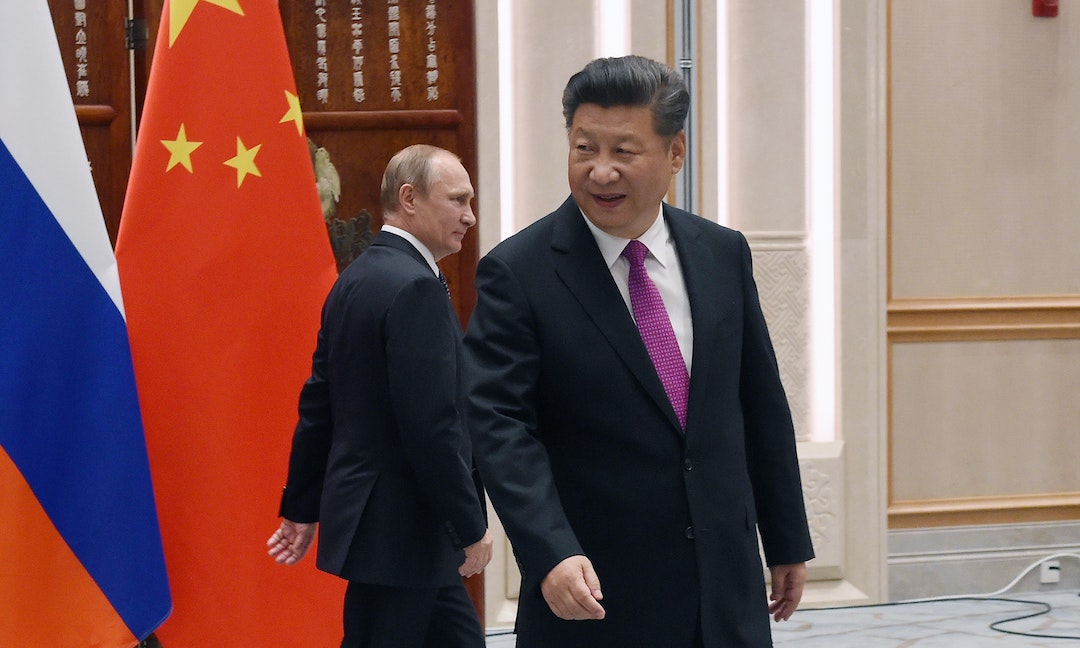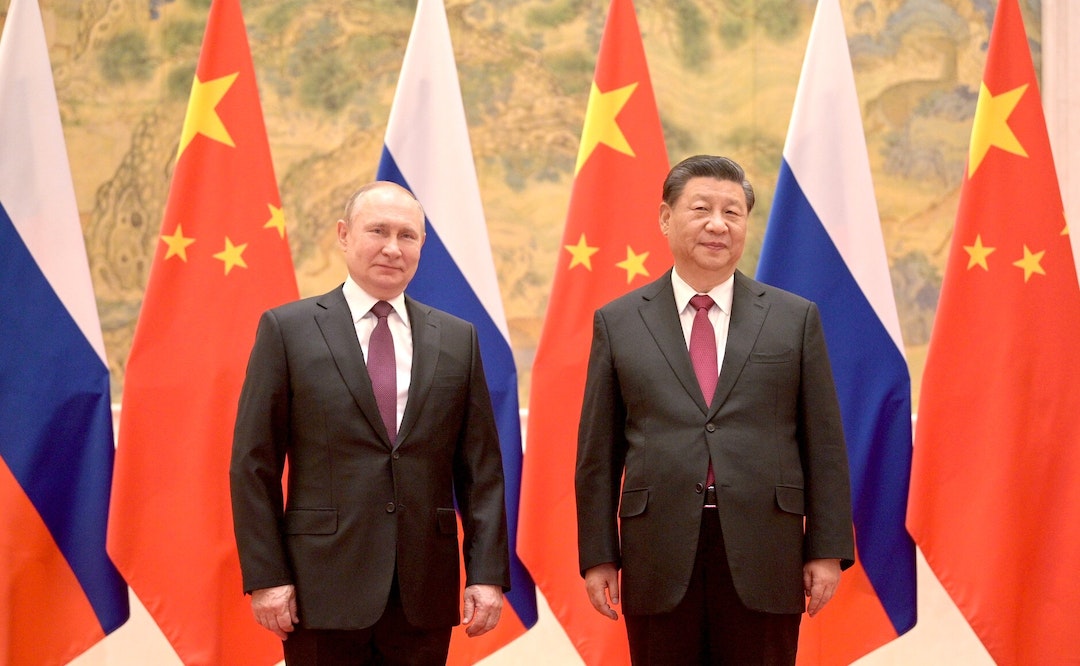
China on Friday called for a cease-fire in Ukraine and the start of peace talks between Kyiv and Moscow.
It was part of a 12-point peace plan to resolve the war through political means.
Beijing has presented a neutral stance in the war. However, China has also said it has a “no limits friendship” with Russia and has refused to condemn the invasion of Ukraine.
What China’s 12-point paper on the war in Ukraine said
Dialogue and negotiations are the “only feasible solution to the Ukraine crisis,” according to the proposal released by the Foreign Ministry.
Beijing also said unilateral sanctions and maximum pressure cannot solve the issue and “they only create new problems.”
“China opposes unilateral sanctions unauthorized by the UN Security Council. Relevant countries should stop abusing ‘long-arm jurisdiction’ against other countries,” the document laid out.
While Russian President Vladimir Putin has talked up Moscow’s nuclear arsenal, China’s peace plan said, “nuclear weapons cannot be used, and nuclear war cannot be fought. The threat or use of nuclear weapons should be opposed.”
“All parties must stay rational and exercise restraint, avoid fanning the flames and aggravating tensions, and prevent the crisis from deteriorating further or even spiraling out of control,” the document added.
Other points call for protection for prisoners of war and stopping attacks on civilians, keeping nuclear power plants safe, and facilitating grain exports.
Reactions to China’s peace plan
Ukraine called the position paper “a good sign” and said it expects China to be more active in its support of Ukraine.
“We hope they also urge Russia to stop the war and withdraw its troops,” Ukraine’s charge d’affaires in Beijing, Zhanna Leshchynska, said.
Meanwhile, NATO Secretary-General Jens Stoltenberg reacted reservedly, saying Beijing did not have “much credibility” as a mediator.
“China doesn’t have much credibility because they have not been able to condemn the illegal invasion of Ukraine,” Stoltenberg told reporters in Tallinn, noting that China had signed an agreement with Russia just days before the invasion.
European Commission President Ursula von der Leyen also pointed out Beijing’s close ties with Moscow. “You have to see them against a specific backdrop, and that is the backdrop that China has already taken sides by signing, for example, an unlimited friendship right before the invasion,” she said.
“So we will look at the principles, of course, but we will look at them against the backdrop that China has taken sides,” she added.
The United States criticized the paper. The U.S. national security advisor said the war “could end tomorrow if Russia stopped attacking Ukraine and withdrew its forces.”
German President Frank-Walter Steinmeier questioned Beijing’s willingness to mediate.
“Every constructive suggestion that brings us closer on the path to a just peace is highly welcome,” he said. “Whether global power China wants to play such a constructive role is still doubtful,” he said.

How analysts see China’s proposal
Ian Chong, a political scientist at the National University of Singapore, told DW that Beijing’s proposal does not pressure Russia to change its action toward Ukraine.
“What struck me in particular is the fact that there are no proposals to incentivize or leverage Moscow to change its behavior,” he said. “There is no pressure and there is no offer that might benefit Russia should it comply.”
Blake Herzinger, a nonresident fellow at the American Enterprise Institute focusing on Indo-Pacific defense policy, said China’s statement reflected its own interests.
“This global security idea reflects effectively Beijing’s interest. They want to shape up an order that’s in their interest,” he told DW.
Beijing has blamed NATO’s expansion for the conflict, he noted, but “not once in the statement did they refer to the invasion or anything else. It’s all the ‘Ukraine crisis.’”
“In Beijnig’s actions, we see where they really stand, which is they feel that as a large power, they get special consideration and it’s effectively their way or the high way,” Herzinger added.
China’s relations with Russia
The position paper was released by China at a time when Beijing is being accused of considering supplying arms to Russia but it has dismissed the allegations.
China’s Foreign Ministry on Friday said it was unaware of discussions between Moscow and a Chinese company on arms supplies. A day earlier, German magazine Der Spiegel reported that Russia was in talks with a Chinese manufacturer about buying 100 drones.
“There has been a large volume, too much disinformation spread about China on this point. We should be vigilant about the intentions behind this,” ministry spokesperson Wang Wenbin told a news briefing.
“I also want to emphasize that China on the export of military products has always held a cautious and responsible attitude, not selling military products to conflict areas or warring parties.”
China is maintaining a close relationship with Russia while also trying to position itself as a neutral party to the conflict.
On Wednesday, China’s top diplomat, Wang Yi visited Moscow and met with Putin and Russia’s foreign minister, Sergey Lavrov.
The statement released after their meeting quoted Wang saying China was willing to “deepen political trust” and “strengthen strategic coordination” with Russia.
fb, mf/rt (AP/AFP)
This article was originally published on Deutsche Welle. Read the original article here.
READ NEXT: Mediating the Russia–Ukraine War a Risky Role for China
TNL Editor: Bryan Chou (@thenewslensintl)
If you enjoyed this article and want to receive more story updates in your news feed, please be sure to follow our Facebook.







